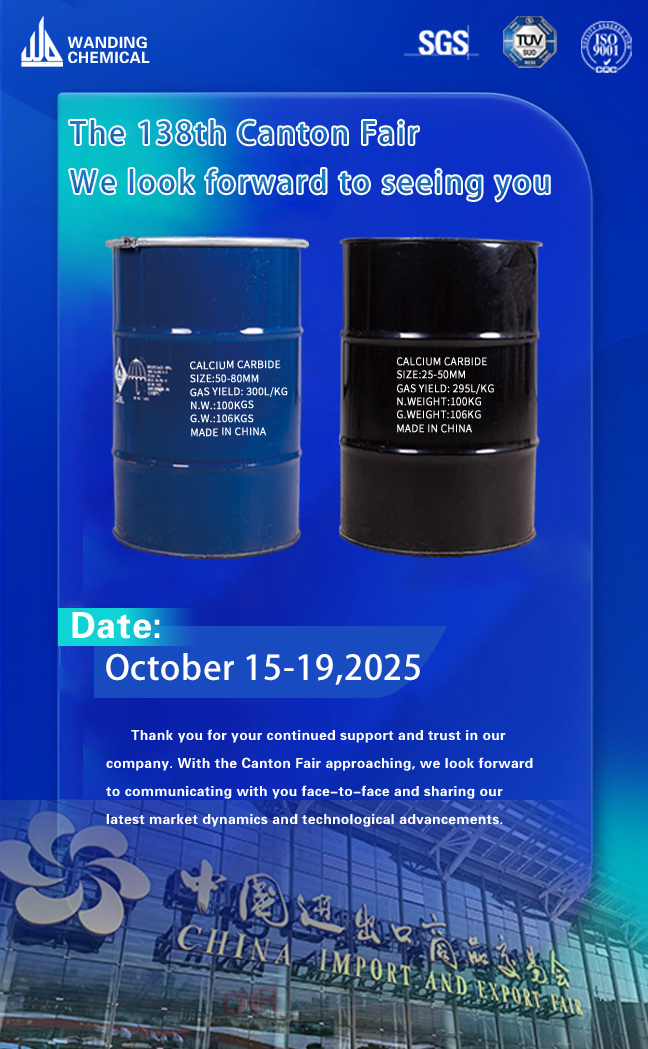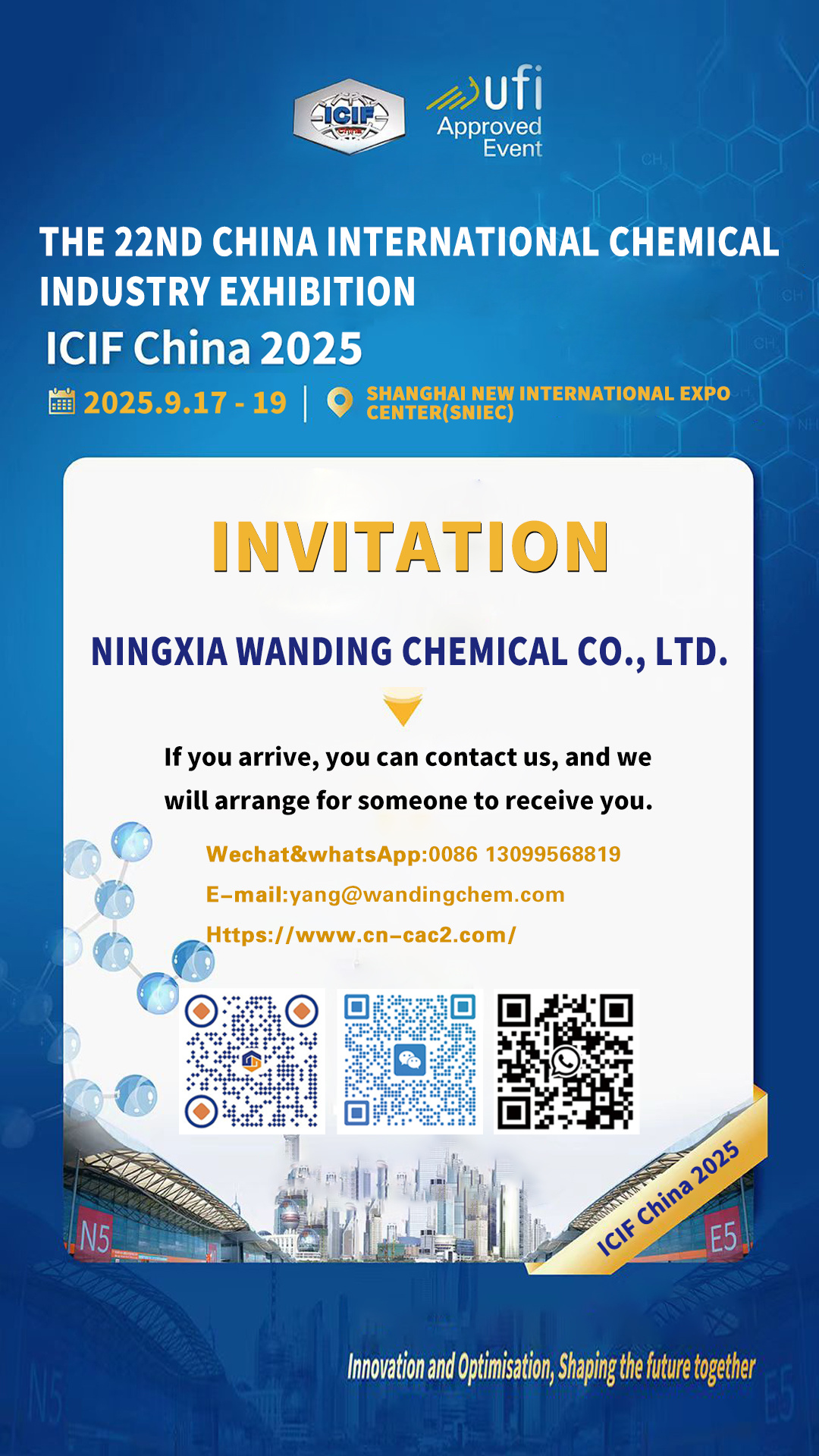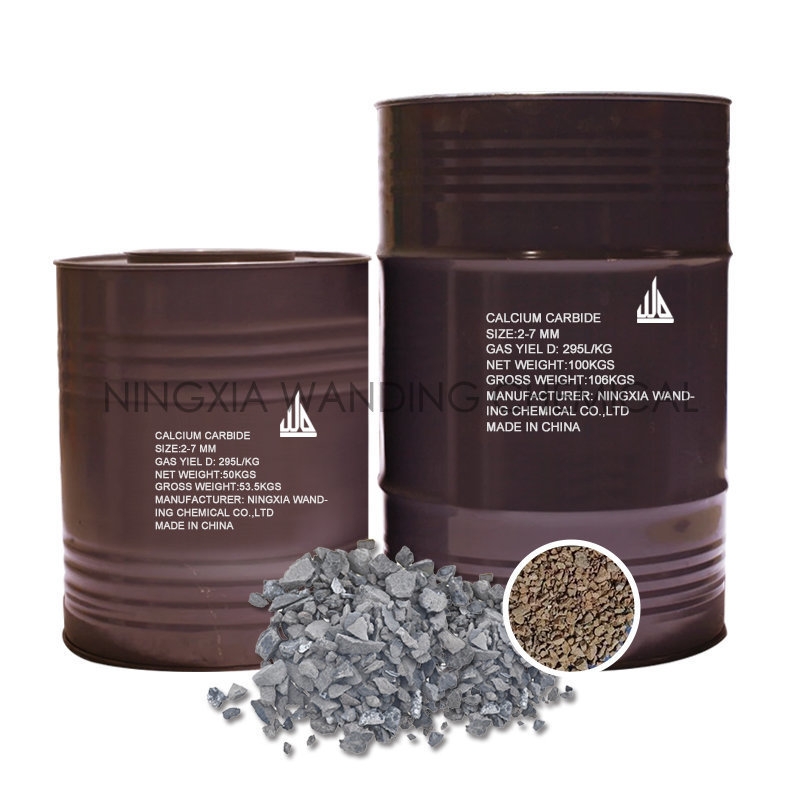Analysis of the core role of calcium carbide (CaC₂) in industrial processes and applications
Release Time:
2025-11-06
Analysis of the Core Role of Calcium Carbide (CaC₂) in Industrial Processes and Applications
As the “cornerstone of inorganic chemistry,” calcium carbide (CaC₂) serves as a critical bridge between basic chemical industries and downstream applications, thanks to its unique chemical reactivity (vigorous reaction with water to generate acetylene gas) and physical properties (high melting point, good conductivity). This paper systematically analyzes the irreplaceable role of calcium carbide from three perspectives: technical principles, industrial process optimization, and cross-sectoral value.

1. Acetylene Production: The “Strategic Pivot” of Chemical Raw Materials
The chemical reaction between calcium carbide and water is:
CaC₂ + 2H₂O → C₂H₂↑ + Ca(OH)₂
This reaction is not only the core source of industrial acetylene, but also the foundation of the modern “acetylene economy.”
1. Organic Synthesis Hub
As one of the most important basic raw materials beyond the “three olefins and three aromatics,” acetylene serves as a key precursor for synthesizing vinyl chloride (PVC monomer), vinyl acetate (EVA resin), acrylic acid, and many other compounds, extending into trillion-dollar markets such as plastics, coatings, and fibers.
Globally, about 60% of calcium carbide is used for PVC production, with China accounting for over 40% of global PVC capacity—making carbide supply stability a key factor in the security of the chemical value chain.
2. A Revolution in Metal Processing
The oxy-acetylene flame—produced by the combustion of acetylene and oxygen—reaches temperatures of up to 3200°C, making it the ultimate tool for metal cutting and welding. Its thermal efficiency is 30% higher than arc welding, and it is particularly suited for processing irregular metals. To this day, it remains a standard technology in shipbuilding and aerospace manufacturing.
3. Green Transition Challenges
Traditional carbide-based acetylene production is energy-intensive (about 1.2 tons of standard coal per ton of PVC) and generates difficult-to-handle carbide slag (Ca(OH)₂). The industry is now moving toward low-carbon transformation through innovations such as dry acetylene generation (saving 90% of water use), cement production from carbide slag (recycling rate >95%), and hydrogen-based or natural gas acetylene production.
2. Steelmaking Industry: The “Invisible Champion” in Deoxidation and Alloying
In steel production, calcium carbide plays a dual role as both a deoxidizer and alloying agent, with its effectiveness reflected in precise process control.
1. Deoxidation Refining
Calcium (Ca) in CaC₂ reacts with oxygen (O) and sulfur (S) in molten steel to form CaO and CaS, reducing inclusions and improving steel toughness.
For example, in bearing steel production, carbide deoxidation can increase fatigue life by more than 50%.
2. Alloying Adjustment
By controlling the addition of carbide, calcium levels (0.001%–0.005%) in steel can be fine-tuned to refine grain structure and enhance weldability. It is indispensable in producing high-end grades such as automotive sheets and pipeline steels.
3. Balancing Cost and Efficiency
Compared with aluminum deoxidizers, calcium carbide reduces costs by about 40% and reacts more gently (less spattering). However, precise temperature control (1600–1700°C) is required to avoid calcium volatilization.
In modern converter steelmaking, carbide is used in combination with ferrosilicon and aluminum-manganese alloys, forming a mainstream composite refining process.
3. Agriculture: The “Chemical Magician” of Ripening and Preservation
The agricultural use of calcium carbide arises from the plant hormone effects of its hydrolysis product—acetylene gas.
1. Ripening Mechanism
Acetylene induces the production of ethylene (C₂H₄) in fruits, triggering respiration bursts and promoting ripening.
In banana ripening, the acetylene released from the reaction between carbide and water shortens the ripening period by 3–5 days, producing more uniform coloration than ethephon-based chemical ripeners.
2. Preservation Challenges and Solutions
Excess acetylene can cause fruit decay, so precise control of reaction conditions (carbide granularity, humidity, etc.) is essential.
The new slow-release carbide capsule technology enables steady acetylene release, extending the shelf life of mangoes to over 25 days.
3. The Organic Agriculture Debate
Although carbide ripening complies with international food safety standards, consumer skepticism about “chemical ripening” is driving a shift toward natural ripening agents (e.g., ethylene released by apples).
Calcium carbide remains dominant in premium fruit exports, though biotechnology-based alternatives are gradually gaining market share.
4. Cross-Industry Value: The “Chain Reaction” from Energy to Environment
The industrial value of calcium carbide extends far beyond single applications, forming a multi-dimensional synergy network:
Energy Coupling:
Calcium carbide production consumes about 3450 kWh of electricity per ton. When integrated with renewable energy sources (solar, wind), it can form a low-carbon “green power–carbide–acetylene” industry chain.
Circular Economy:
Using carbide slag to replace limestone in cement production can reduce CO₂ emissions by 1.1 tons per ton of cement and cut production costs by 15%.
Strategic Reserve:
As a solid storage form of acetylene, calcium carbide can be rapidly converted into emergency fuel during wars or natural disasters, offering greater stability than high-pressure gas cylinders.
Conclusion: The Future of Calcium Carbide — A Symphony of Tradition and Innovation
Despite pressures from global energy transitions, calcium carbide remains a core material in advanced manufacturing and agricultural safety due to its unique chemical properties.
Future innovations—such as waste-heat recovery from carbide furnaces, hydrogen-based reduction, and bio-acetylene production—are expected to enable the carbide industry to achieve “carbon reduction without efficiency loss.”
For industry professionals, a deep understanding of calcium carbide’s multifaceted value is not only the key to navigating industrial transformation, but also the compass for seizing emerging market opportunities.
Ningxia Wanding Chemical Co., Ltd., established in 2002, is a professional calcium carbide manufacturer integrating processing, packaging, transportation, and sales of calcium carbide raw materials, and possesses independent import and export rights.
Click to contact us for the latest product specifications and prices.
News Hotspot




















